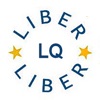Supporting FAIR Data Principles with Fedora
DOI:
https://doi.org/10.18352/lq.10247Keywords:
linked data, open source, fair data, repository, fedoraAbstract
Making data findable, accessible, interoperable, and re-usable is an important but challenging goal. From an infrastructure perspective, repository technologies play a key role in supporting FAIR data principles. Fedora is a flexible, extensible, open source repository platform for managing, preserving, and providing access to digital content. Fedora is used in a wide variety of institutions including libraries, museums, archives, and government organizations. Fedora provides native linked data capabilities and a modular architecture based on well-documented APIs and ease of integration with existing applications. As both a project and a community, Fedora has been increasingly focused on research data management, making it well-suited to supporting FAIR data principles as a repository platform. Fedora provides strong support for persistent identifiers, both by minting HTTP URIs for each resource and by allowing any number of additional identifiers to be associated with resources as RDF properties. Fedora also supports rich metadata in any schema that can be indexed and disseminated using a variety of protocols and services. As a linked data server, Fedora allows resources to be semantically linked both within the repository and on the broader web. Along with these and other features supporting research data management, the Fedora community has been actively participating in related initiatives, most notably the Research Data Alliance. Fedora representatives participate in a number of interest and working groups focused on requirements and interoperability for research data repository platforms. This participation allows the Fedora project to both influence and be influenced by an international group of Research Data Alliance stakeholders. This paper will describe how Fedora supports FAIR data principles, both in terms of relevant features and community participation in related initiatives.Downloads
Download data is not yet available.

Downloads
Published
2018-10-15
Issue
Section
Case studies
How to Cite
Supporting FAIR Data Principles with Fedora. (2018). LIBER Quarterly: The Journal of the Association of European Research Libraries, 28(1), 1-8. https://doi.org/10.18352/lq.10247






